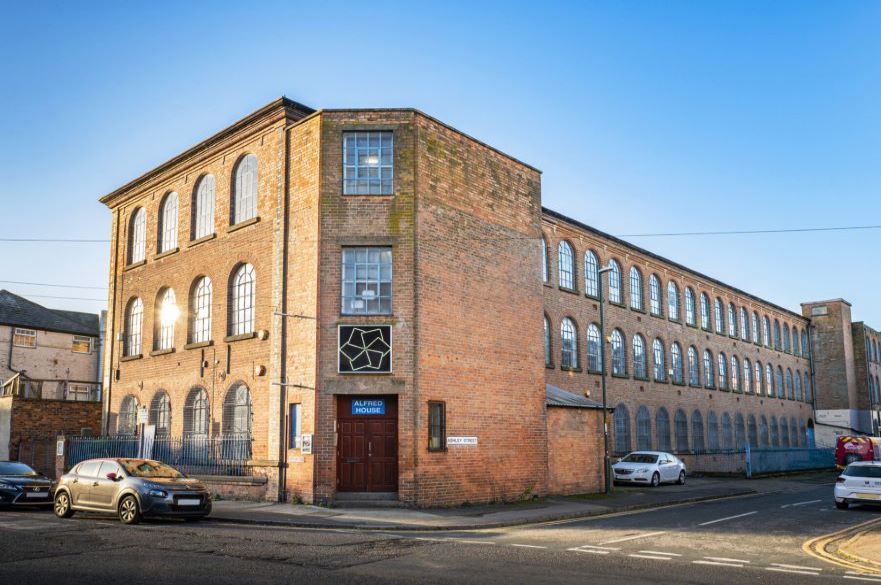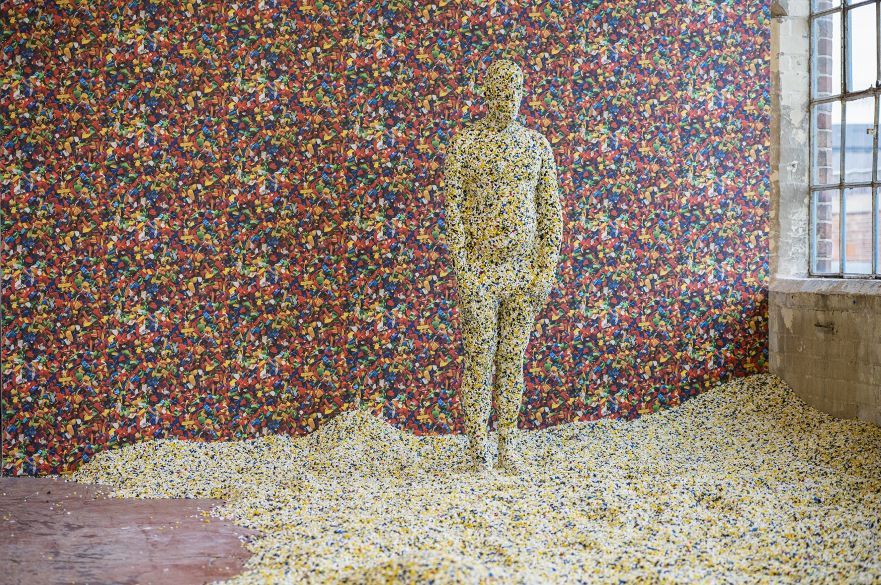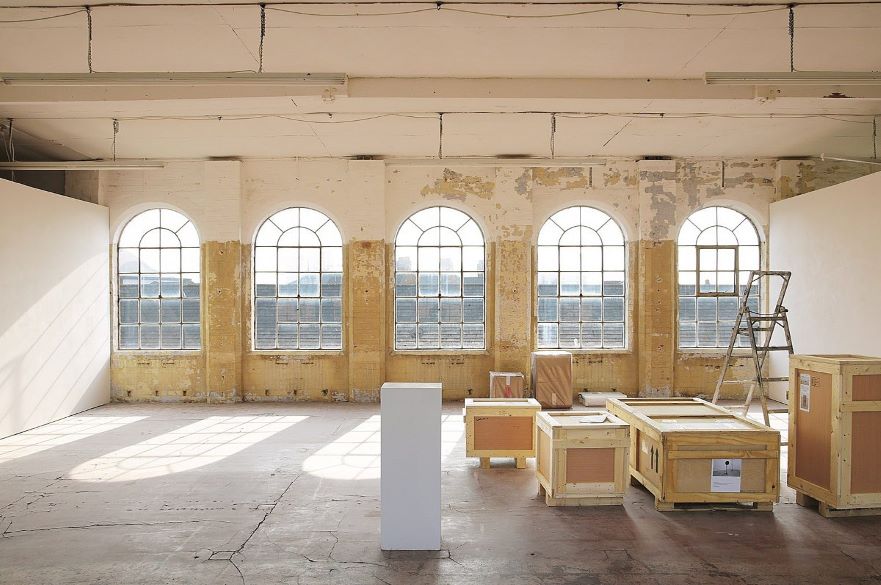Sustainability in Enterprise - BACKLIT
City gallery BACKLIT are on track to reduce the carbon footprint of it’s historic Victorian premises by over a third. This has been achieved as a result of student sustainability consultancy from NTU’s Sustainability in Enterprise project.


BACKLIT is an artist-led public gallery and studios in Nottingham, supporting arts and culture since 2008.
Founded in 2008, BACKLIT is an internationally renowned, artist-led public gallery and studios, supporting arts and culture in Nottingham. Since opening, it has presented over 100 national and international exhibitions and is home to over 120 artists, collectives and associate members. It continues to support local communities and the public with their yearly free programme of exhibitions, events and workshops.
BACKLIT is committed to sustainability with Environmental one of their four key areas of focus, along with Mental Health, Equality, Diversity and Inclusion, and Digital. Alongside Nottingham Contemporary, BACKLIT has brought together cultural organisations across the city to improve sustainability, by sharing resources, suppliers, best practice and training on things like carbon literacy.
They have also been focusing on the sustainability of their historic Victorian building, with galleries and studios across three floors. BACKLIT's senior leadership team has been working closely with final year students and lecturers from NTU’s School of Architecture, Design and the Built Environment (ADBE) on a project to reduce energy and carbon emissions, led by Lecturer in Sustainability, Dr Ana Rita Domingues.
The support is provided as part of the Sustainability in Enterprise (SiE) project, which is part-funded by the European Regional Development Fund (ERDF) and aims to support small to medium-sized businesses (SMEs) within the Greater Nottingham SUDS area.
The student-led project identified bespoke recommendations that could help save energy and reduce their carbon footprint by 34%.

Plastic Pete - made from reused plastic waste donated locally.
We spoke to Founding Director, Matthew Chesney to find out how they benefited from the student sustainability consultancy. Matthew founded BACKLIT immediately after graduating from NTU with a degree in fine art.
“We heard Dr Rita Domingues talk about the Sustainability in Enterprise project to cultural leaders in the city and immediately thought it was of interest. We have our own agenda to be as sustainable as possible and have already improved our heating and lighting system with ERDF funded energy grants. Over the next five years, Environmental will be a key area for us to research and deliver on, across our organisation and our programme of arts and culture.”
BACKLIT recently worked with artist and former NTU tutor, Joshua Sofaer and the Environment Agency on a project raising awareness of plastic waste. The interdisciplinary exhibition included a plastic sculpture of a body weighing 96.6kg – the unbelievable amount of plastic waste we produce per person in the UK every year. Plastic Pete as the figure is called, was made from reused plastic waste donated by local people, helping them to share ownership of the project. The live ‘body cast’ was carried out in the Nottingham School of Art & Design by the Advanced Textiles Research Group, and once the exhibition finished, NTU brought the sculpture to keep on permanent display.
Matt explained the challenges facing BACKLIT going into the SiE project:
“We have two major issues when it comes to improving our energy efficiency. Firstly, we don’t currently own our building, and as a tenant, there’s a limit to what we can afford to invest. Secondly, our home is a heritage building and converted textile factory which makes it less energy efficient compared to newer buildings.
“That heritage is something to be celebrated and we care very deeply about the history of Alfred House. But alongside that, we need to try and keep on top of energy saving solutions, while making sure our building is fit for purpose as a public gallery and studio space.
“The heating system we invested in recently was the best in terms of energy efficiency three years ago, but now the focus is on air source heat pumps. It’s challenging for organisations like ours to stay up to date as environmental solutions and the economic and political climate around them change.
“The support we had from Rita and the student sustainability consultants was broader compared to other more specific energy audits we’ve had in the past. They came in to get a full sense of the space, before making suggestions of what we could do to save energy and reduce our carbon emissions.
“The project enabled us to take advantage of their unique skill set and expertise, as ADBE students and sustainability consultants. We need that kind of knowledge to make decisions on the best way forward, especially now, with the energy crisis. Our gas and electricity bill has gone up tenfold since we opened in 2008.”
The impact

BACKLIT offers a range of spaces for hire
As part of the consultancy project, the students presented BACKLIT with a report outlining their findings and recommendations. With their knowledge of Architecture, Design and the Built Environment, the students were able to explore how BACKLIT could benefit from a broad range of energy saving solutions. From maximising natural light throughout the building and installing a Building Management System (BMS) to monitor electricity, gas and water consumption, to making building modifications and retrofitting insulation and additional glazing to keep heat in.
Suggestions also included ‘quick wins’, such as switching to LED lights, using timers or motion sensors to make sure lights aren’t left on unnecessarily, and controlling light by studio, rather than by floor. This is in addition to longer-term investments, such as installing solar panels, a rain water collection system, an air source heat pump, or a higher efficiency boiler to replace the older, smaller ones currently fitted.
The student sustainability consultants outlined the potential cost and carbon savings of a number of recommendations, along with the potential cost and time frame to pay back. The consultants found that switching to LED lighting could save BACKLIT £1,500 a year and cut their carbon footprint by 2,350kg. While adding motion sensors to lights could save £200 a year, and 200kg of carbon. Installing a more efficient boiler could save £90 a year, and 400kg on carbon, while fitting radiator valves could save £70 a year and 360kg of carbon.
The student-led project involved understanding BACKLIT's beautiful yet complex heritage building and identified bespoke recommendations that could help save energy and reduce their carbon footprint by 34% (3,310kg a year), saving BACKLIT around £1,860 a year.
What we’re doing next

Matthew Chesney, Founding Director of BACKLIT
“We’re having conversations around how we can fund and implement the suggestions we’re keen to take forward, including installing solar panels to heat hot water, an air source heat pump to heat and cool the building, and a central BMS system. Looking at this kind of long-term investment can be daunting because of the significant upfront costs involved, but it’s still important to explore the opportunities, even as a tenant.
We’d like to own our building, but until then, we’d like to work in partnership with the city council to invest in energy efficiency.”
Matt concludes: “There’s a real connection between the SiE project and Nottingham’s goal to be carbon neutral by 2028. NTU’s support for organisations is critical if the city is to reach that target and can influence the citywide strategy and investment needed to make it happen. I’ve recommended the project to other cultural organisations in Nottingham, several of which have already taken part.”
Rita shared her thoughts on the benefits of the project for ADBE students.
“This was a great opportunity for students to be involved in a real project with a real organisation. It gave them the chance to explore sustainability in the tailored context of a unique heritage building, and a public space where people and the local community are very much part of the building. It’s not just the skills that students gain that are important, but also the relationships with organisations they develop.
“The students shared that visiting BACKLIT's building and working with Matt has helped them learn more about the different levels of sustainability in the built environment, and how much it can range.”
How to access the support available
Find out more about the broad range of support that NTU is providing to local businesses:
- Email: workingwithyou@ntu.ac.uk
- LinkedIn: NTU Business and Employers
- Twitter: NTU Business and Employers